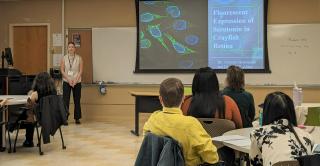
Our definition of generalist social work practice is informed by The Educational Policies of The Council on Social Work Education and is anchored in the purposes of the social work profession (Sheafor and Horejsi 2003, p. 87). The culturally competent generalist social worker is prepared to engage and work with a variety of client systems, especially those who are socially and economically isolated and populations at risk. Content on the populations at risk within the State of Connecticut which we provide are given special emphasis to include marginalized women, children and adolescents, Puerto Rican/Caribbean Basin Natives, African Americans, persons living with HIV/AIDS, persons with disabilities, refugees, new immigrants, gay men, lesbian women, bi-sexual and transgender individuals, older adults. Refugee populations include Bosnians, Kosovos, Laotians, Vietnamese, Mexican and Columbian. Immigrants include Jamaican, Haitians, Bahamian and Brazilian populations.
We believe that if students are trained to understand that life is dynamically interwoven by historical, social, political, and economic forces, then students will be able to comprehensively assess conditions and be prepared to work in a variety of practice environments and levels of intervention.
In addition by generalist social work we educate and train social workers to engage in intervention activities that link client systems with the resources necessary to respond and assist in resolving individual and social problems. We also train our students to become skilled in conducting needs assessments related to all system sizes, including individuals, families, groups, organizations and communities. We desire our students to become culturally competent and to be prepared to carry out a variety of social work roles including but not limited to advocate, educator, case manager and broker.




